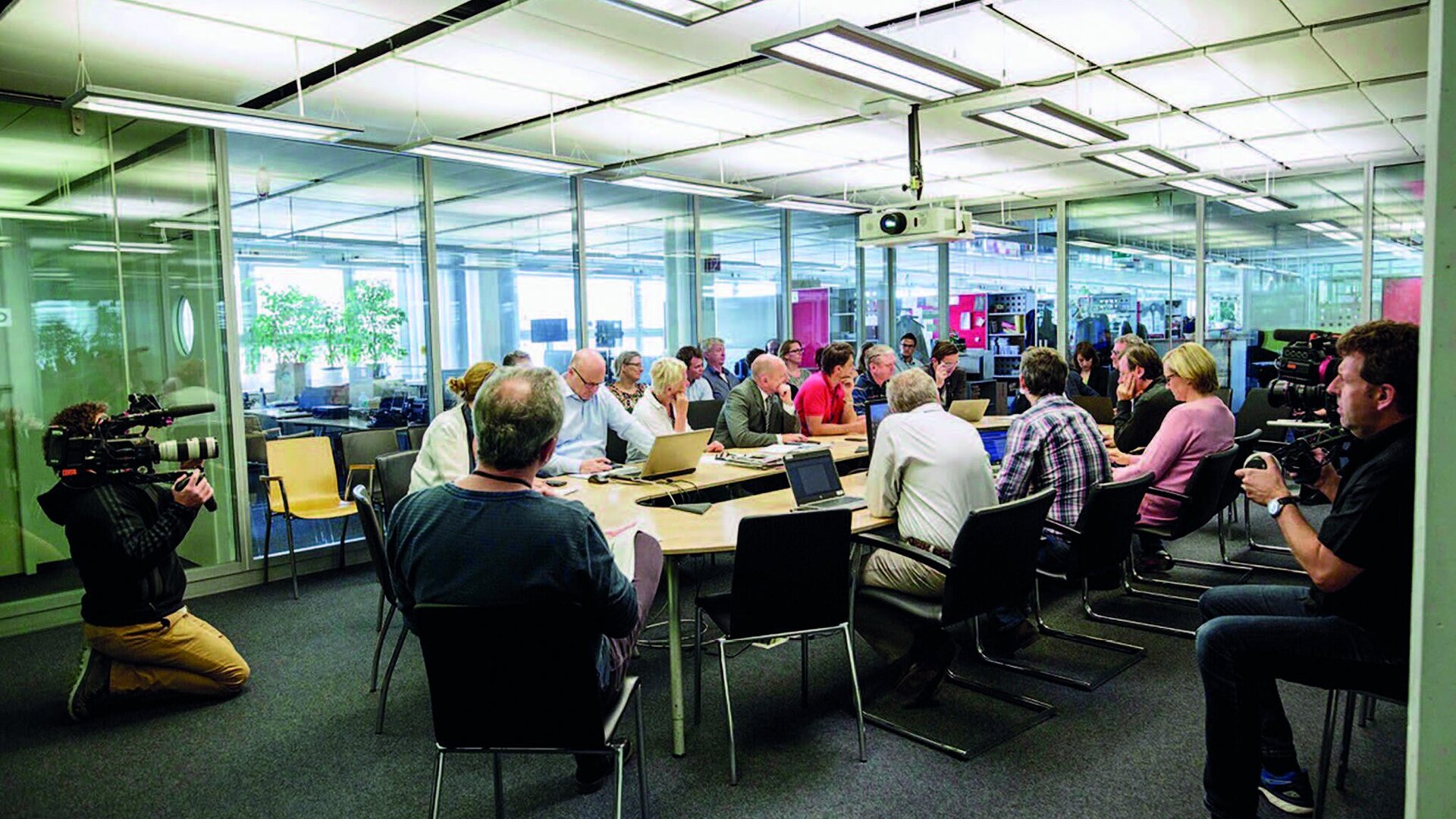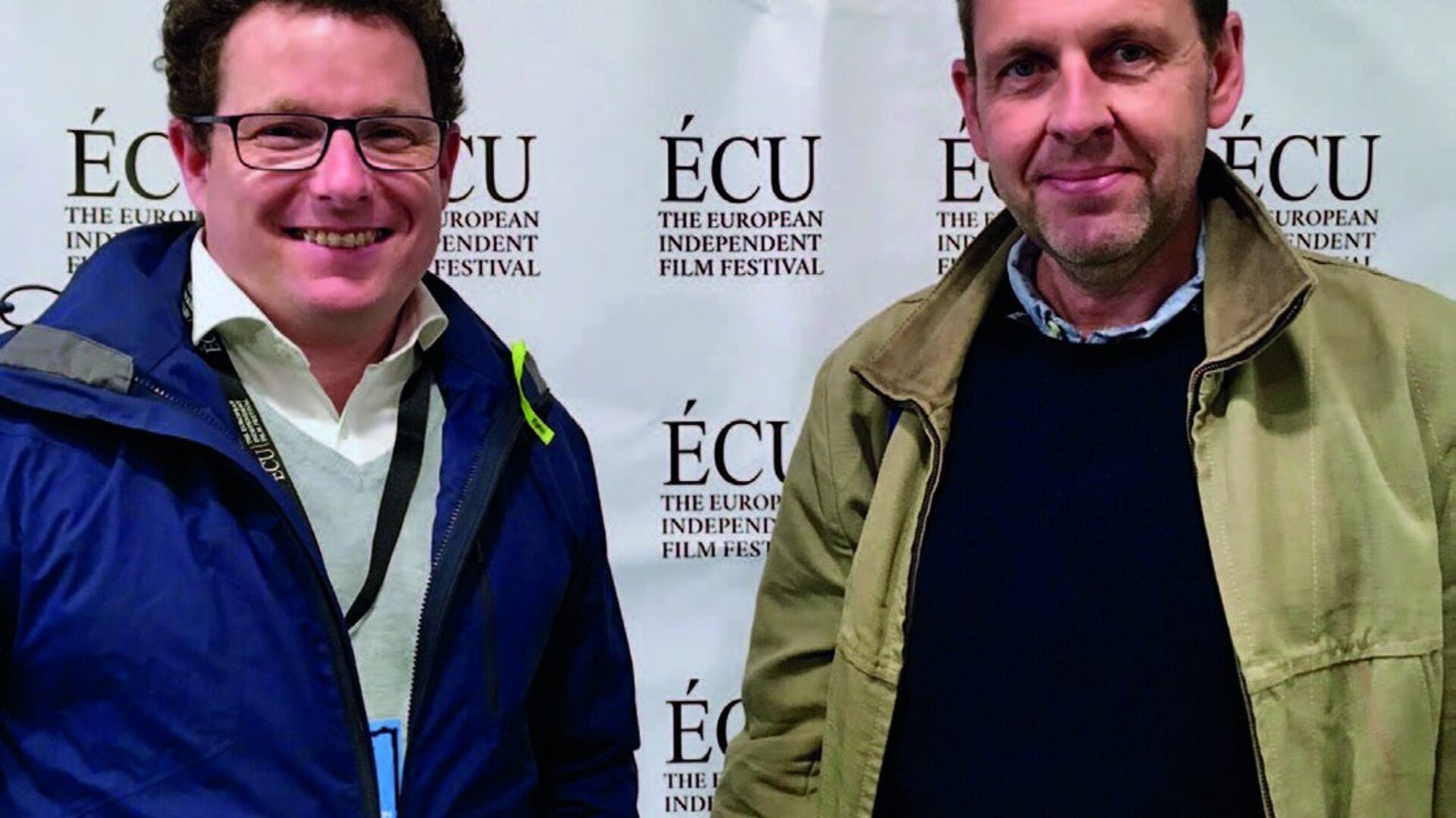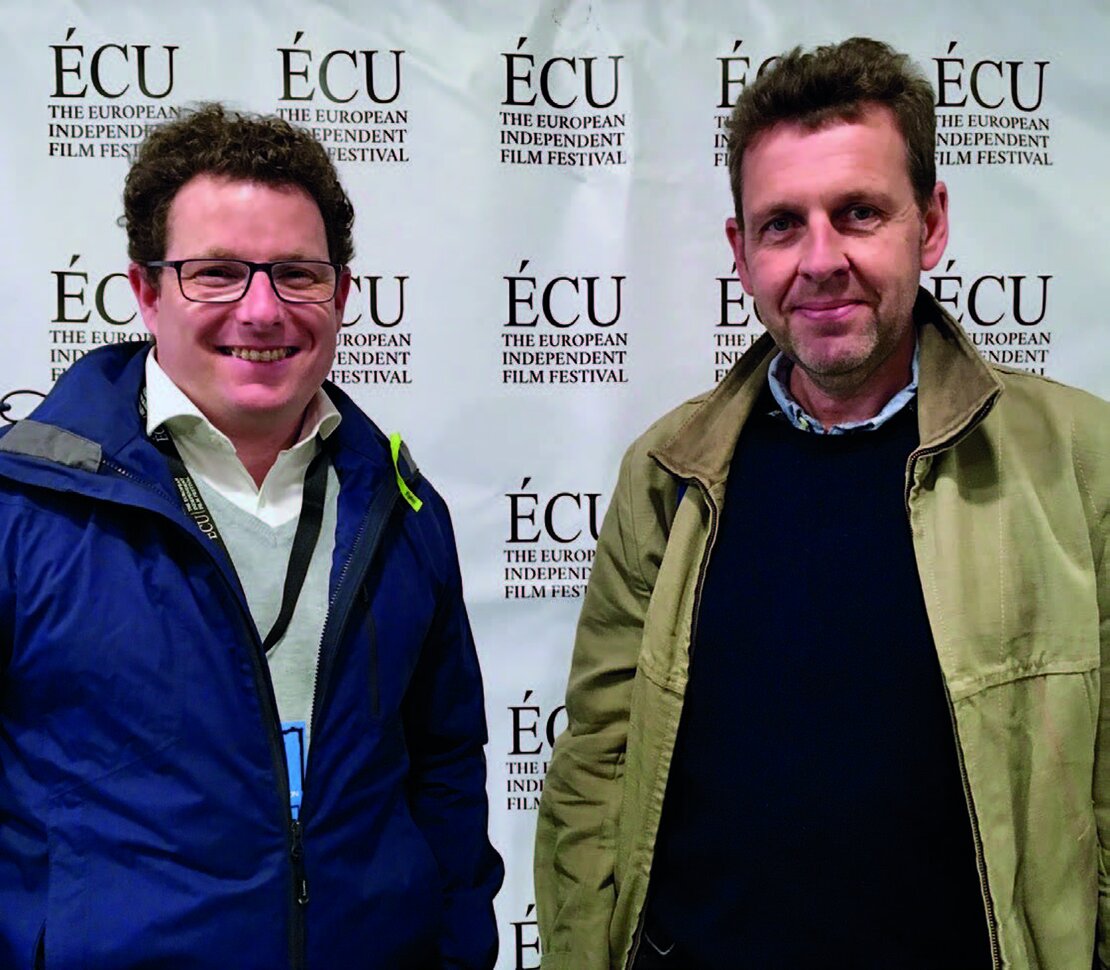Initially, not everyone was immediately aware of what those two had in mind when Carlo Hofmann and Dieter Heller (both of them had shot a number of TV documentaries, etc. for the ORF) presented their idea to Wolfgang Wagner who was the head of ZIB 2 at that time. Both didn’t want to accept the statement of an Austrian politician about a year ago, which he said was meant as a satire: "There is a place where lies become news. That's the ORF!". As trained cameramen, they wanted to form an opinion about this issue by following the process where the truth becomes a lie - or not. "We wanted to use the daily processes in the ZIB 2 editorial department of the ORF to show how important journalism of quality is and how it works in the context of a public television station," explains Dietrich Heller.
They actually succeeded in convincing the head of the ORF, Alexander Wrabetz that the ORF is only profiting from confronting the central issue. In May 2018, the two of them, followed people like Armin Wolf, Wolfgang Wagner, Anchor Woman Lou Lorenz-Dittlbacher, Ulla Kramar-Schmid, Andreas Pfeifer and others for two days and drew a precise picture of how and what is being worked on there, using a Sony FS7 MII camera and Canon photo optics (Rental: Equipment Cafe). It quickly became clear that those people working for the ORF have a very special self-image, because they never get tired of emphasising the special position of a fee-financed, public broadcasting station. They grade those works they are producing every day as journalism of quality, and they view it as an indispensable part of a functioning democracy.
In an Interview Armin Wolf is clarifying: Journalism of quality is actually not financially viable at the free market - even in the past, the free press was in fact the luxury of a few rich men, who wo were able to publish newspapers to print their opinions. A few decades ago, a lot of money was necessary to publish a newspaper, and the same applied to TV stations, where millions were invested in. According to Armin Wolf, the only way of financing independent journalism or journalism of quality, is the model of a public television station that is partly financed by fees. Because such a station does not belong to anyone and is therefore not obligated to any owners.
Throughout the interviews, it gets obvious that the ZIB 2 employees are no illusionists and know very well that they are exposed to criticism today more than ever. This is also because nowadays, Wolf continues, everyone can start their own TV station or newspaper, for example as a blog. We either could let the people (who are voters as well and therefore should be able to judge parties and politicians according to their programmes and what they implement) gather information through the Internet, or we could try and counter this with news that are as objective as possible, Wolf continues. International voices were also being heard: Giovanni Di Lorenzo, editor-in-chief of "Die Zeit", Anastasiia Kanarova, independent journalist from Ukraine, and Anja Reschke, political TV journalist and presenter from Germany.
Surely, the short film won’t provide a definitive answer. But watching those slightly more than 20 minutes, very close to the creation of ZIB 2, it looks like the transformation from truth to lie is not happening in between this procedure. "No Lies" celebrated its world premiere at the European Independent Film Festival (ECU) in Paris at the beginning of April with great success and received a Merit Award at the "Best Shorts" festival in California. By the way, the two authors and cameramen financed the film by themselves, because they did not want to wait months or even years for funding, as the press release says. The film music was written by Mathias Werner, the postproduction was done with the support of viennafx, and the sound was mixed by Hupo Weninger. The trailer can be found under "No Lies" on Vimeo.
Looking back:
For me, the author of these lines, this short documentary awakens many images in my head, as I know two of the interviewees personally: Wolfgang Wagner, head of the editorial department during the shooting of "No Lies", was an editor in the department of domestic policy at the ZIB in the 90s and Armin Wolf, back then a rather unknown member of the journal editorial department at the radio station. At that time presenter Rober Hochner was the big star of the ZIB 2, who had returned to the ORF and who shaped the programme like no other. Elmar Oberhauser, then head of the ZIB 2 editorial office back then, was known as a caustic presenter, and both Hochner and Oberhauser conducted some legendary studio interviews.
Robert Hochner even managed to draw the PLO boss Jassir Arafat, who visited the studio at the Küniglberg (ORF centre), out of his shell with targeted and politely presented questions to an extent, where he almost lost his temper because he was that angry about Israel. Today Robert, with whom I had the pleasure of maintaining a friendly relationship, has been dead for almost 18 years - he would be 74 today and certainly retired. He never made a secret of his depressions, but his ability to conduct interviews, to ask everything but never not show up the interviewee made him a legend. Although he too had some setbacks to digest. When the Arbeiter Zeitung, the former central organ of the SPÖ, tried to give itself a new image with a new start under new ownership, he was hired as editor-in-chief. He accepted, annoyed by the constant competition among the presenters. But the project, which had been tackled with a lot of verve, was not a lucky one; in the end, it died out, like almost all party-newspapers. Even though "deserters" of the ORF weren’t able to return to the mothership, Hochner returned as the presenter of the ZIB 2. What counted for Gerd Bacher, General Director back then, was that Hochner contributed something to the ORF.
His former main competitor was now a ZIB 1 presenter and the ZIB 2 was repositioned under Elmar Oberhauser, who had already made a name of himself as editor of ZIB Innenpolitik with his grumpy way of asking questions. Karl Amon and I (we were charmingly called the "Unterhausers") were the editors and tried to set up our own programme with resistance coming from the departments. This was because the departments wanted to determine the reporting on e.g. domestic politics in all programmes at that time. We wanted to be a topical news programme. By the way, Elmar Oberhauser, who was an excellent journalist, had overdone it in the end with his style of interviewing - allegedly it was Franz Vranitzky who, after the NR election, made sure that Oberhauser became head of sports and thus stayed away from domestic politics. As information director he once tried a coup against Alexander Wrabetz and lost. After having a stroke, Oberhauser is now stepping down a bit and runs a company that deals with broadcasting rights.


